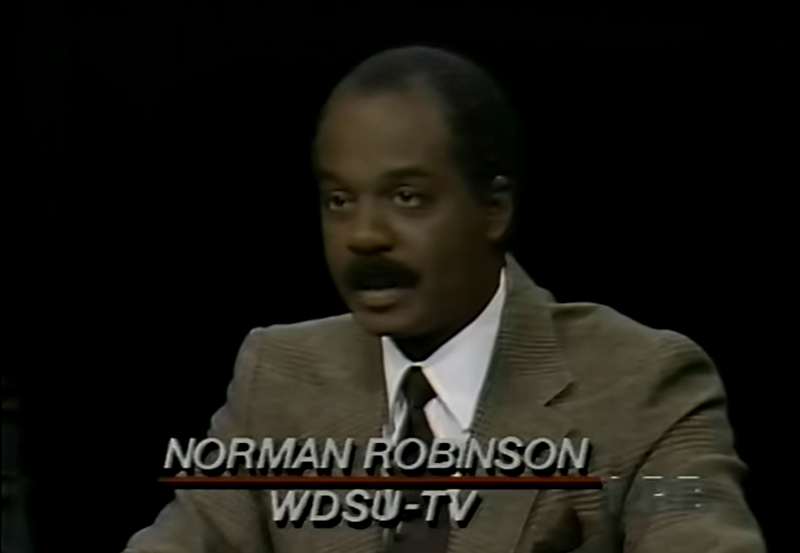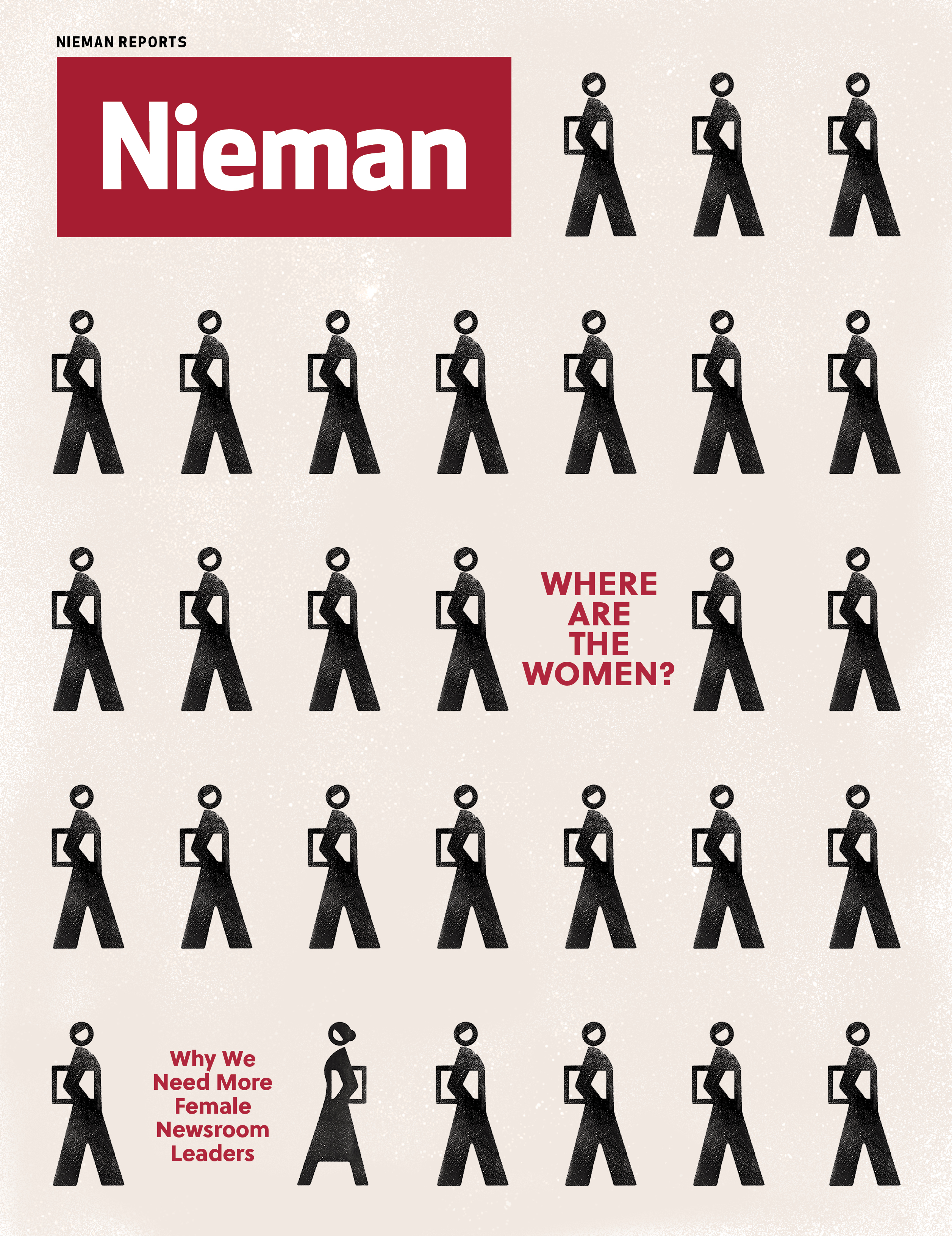
WDSU anchor Norman Robinson, NF '89, stood up to gubernatorial candidate David Duke during a live debate in 1991
Television reporter and anchor Norman Robinson retired in June, ending a 42-year career in journalism. He spent the past 23 years at WDSU in New Orleans, where he was anchor of the evening news broadcast. Robinson got his start at a Southern California radio station in 1972, and later worked in Mobile and New York before arriving in New Orleans in 1976 as a reporter for WWL-TV and WVUE. After his Nieman year, he briefly served as a White House correspondent for CBS News. He returned to New Orleans and joined WDSU in 1991.
Without a doubt the most memorable interview from my four decades as a journalist was my audience with David Duke, the former grand wizard of the Ku Klux Klan (KKK) who ran for governor of Louisiana in 1991. I was selected to be on a panel of reporters who would ask questions of Duke and his opponent, Edwin Edwards, the former governor, during a televised debate. As an African-American news anchor, I almost declined the assignment, given the incendiary atmosphere created by racial tensions at that time. The entire nation was focused on the possibility of a former Klan leader and avowed racist being elected governor in modern America. This election was so important to Louisiana that even some who hated Edwards, a man who had long been accused of using his position for financial gain, urged the electorate to turn out for him. One unofficial but popular pro-Edwards slogan: “Vote for the crook. It’s important.”
Needless to say, the interview was tense. I had to decide whether to walk softly, so as not to risk losing viewers who might be Duke supporters, or take my usual tactic of asking the hard-nosed questions and demanding answers. I chose the latter because it was the right thing to do, viewers and ratings not withstanding. I pressed Duke about his history with the KKK, his documented remarks denigrating blacks and Jews, and went so far as to ask him if he thought an apology was in order, given his claim to a newfound Christian faith.
My line of questioning drew both praise and criticism. Supporters lauded my courage for asking the right questions. Critics, including some who threatened my life, said I crossed the line by using my position to berate Duke. Perhaps there is truth in both points of view. Even the White House was concerned. The first call I received after the debate was from a close friend with political connections, advising me that the White House wanted me to back off Duke.
Duke lost the election, although he received more than 50 percent of the white vote.
It was a defining moment for Louisiana, which would not have to face the international embarrassment of having a former Klansman and neo-Nazi in the governor’s office. And it was a defining moment for me. I discovered my voice and found a new role as a political reporter and an accomplished moderator with a knack for getting to the core of an issue. It was a role that I would assume for many years to come. Following the disaster of Hurricane Katrina, I channeled that energy into my role as moderator of “6 On Your Side Live,” a nightly public affairs show that held elected officials, policymakers and the Federal Emergency Management Agency accountable for the recovery efforts, or rather, the lack thereof.


